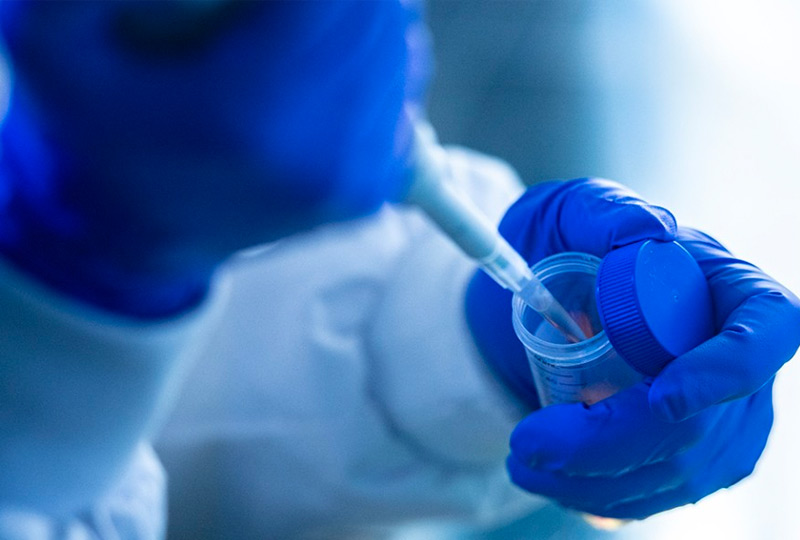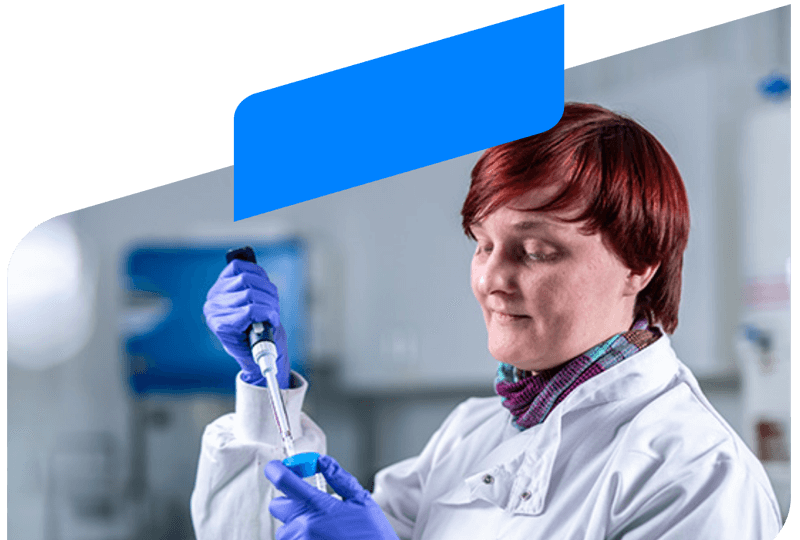Research
Transformative Diagnostics: Tackling the number one cause of death

Sepsis is an indiscriminate, rapid killer.
It is the leading cause of death globally and it leaves sufferers with many more persisting consequences – from amputation to PTSD. Already impacting 50 million people a year, sepsis is compounded by another global and profound issue: Antimicrobial resistance (AMR).
AMR represents a tragic threat to society in the short-term and the long-term, making it one of the WHO’s top ten global public health threats. Today, the increasing ineffectuality of antimicrobials, due to their misuse and/or overuse, is extenuating the challenges of treating infections like bacterial sepsis.
Looking to the future, the scale of this crisis can easily be equivocated to that of global warming.
The biggest tragedy is that the right antibiotics have always been within reach, but the ability to identify them hasn’t. This is why we have a vision to create a world where nobody dies from a treatable infection.
The root of the issue is lengthy diagnostics
The root issue that connects AMR with the challenges of treating bacterial sepsis rapidly and accurately is that it takes too long to identify which are the correct antibiotics.
The gold standard for accurate blood culture is two to three days, by which time one in three deaths from sepsis have already occurred.
A molecular based test is quicker, but only takes a glimpse at the genome sequence, not effectively answering which antibiotics will be effective against a given patient’s specific strain.
Clinicians are either kept waiting, or left guessing. Either way, the consequences of this lack of data are devastating. The impacts ripple across patients, hospitals, and society as a whole. Here are just a few shocking examples:
Patient health
The immediate impact is of course to the patients and their loved ones. 11 million people die every year due to sepsis; with every hour people wait for diagnostics, patient survival rates drop 8%, and even treatment puts patients through a traumatic process after which half of patients do not fully recover.
An astounding number of secondary complications occur due to infections, including both physical conditions, such as amputation, kidney damage and kidney failure, and psychological conditions, such as PTSD. Equally, these challenges to patient care will likely have a negative impact on the working conditions and mental health of physicians.
Antimicrobial stewardship
The inappropriate, but often unavoidable, use of antibiotics has been the most profound outcome of long diagnostic times. Physicians are often pushed to proactively or preventatively prescribe antibiotics before having an accurate picture of the condition at hand in order to avoid greater patient consequences.
This has ultimately fuelled antibiotic resistance and caused these once powerful medical solutions to become blunted. The fact that patients may arrive at the hospital with a life-threatening infection which now, because of historic antibiotic use, may not be easily treatable is a terrifying thought.
This is demonstrated by the clear trend between microbial infections alongside COVID-19 patients.
“The incidence of co-infections could be up to 94.2% in laboratory-confirmed COVID-19 cases”
“A recent study on deceased patients showed that sepsis (100%) acted as one of the main complications”
– National Library of Medicine
Financial cost
“According to the Centers for Disease Control and Prevention (CDC), antimicrobial resistance adds a 20 billion dollar surplus in direct healthcare costs in the United States” – National Library of Medicine.
Infections and their secondary impacts result in more treatments and more medical expenses, financially impacting patients, medical facilities, and national economies. Currently, sepsis directly results in £2 billion in treatment costs in the UK, and £13 billion to the UK economy in total.
AMR will change the face of medicine
The overwhelming and long-term impacts of AMR are life altering. Although we are still learning what the full extent of it will be, the picture we can already see will entirely undermine our medical system if nothing is done.
Antibiotics have extended the average human lifespan by 23 years. Without them, surgeries cannot be performed safely, cancer treatments become far riskier, and infection rates will likely skyrocket. The nature of modern medical treatment and global public health may be completely redefined.
To put this into context, it was predicted that 10 million people could die every year due to AMR by 2051. Although this figure is extremely challenging to quantify and confirm, it does clearly demonstrate the extent of the threat we’re facing.
So, something needs to be done about how infections like sepsis are treated and antibiotics are prescribed.
There needs to be a step-change in diagnostic practices, and genome sequencing is the key.
GenomeKey
We are creating this change through Transformative Diagnostics.
GenomeKey can help save more lives, save costs, and safeguard antibiotics for our future. We address the challenges of existing diagnostics tools and provide faster, more reliable, targeted data about bacterial ID. Clinicians can then act with more information, empowering greater decision-making and certainty about the best course of antibiotic treatment.
Our solution
Our next generation IVD device maps the right antibiotics to the right patient, quickly and affordably.
Our technology empowers clinicians with ultra-precise and rapid diagnostics that could replace today’s blood culture. Using advanced DNA sequencing techniques and novel machine learning methods, our device correctly identifies the bacteria behind the infection in hours, not days.
This is delivered through an automated benchtop device which is fundamentally different. By performing single molecule amplification, whole genome sequencing, and A.I. interpretation, it delivers the following:
- Bacterial Detection -> 2 hours
- Bacterial ID -> 3 hours
- AMR profile -> 5 hours
Not only can practitioners accelerate their decision-making and treatment of sepsis, but they can rely on highly accurate AMR classification to help improve antimicrobial stewardship.
Our global vision
GenomeKey is designed for global impact. The combined bacterial sepsis and AMR threat is a universal challenge that needs a universal solution.
We are driven to deliver diagnostics solutions which support clinicians to do their job and improve people’s lives. This means, everyone needs the opportunity to access transformative technology.
We are the only company creating a viable, low-cost and accessible solution which can be used worldwide to tackle the number one cause of death. Together, with the support of the NHS, expert partners and our investor ecosystem, we are working to save more lives, globally.


